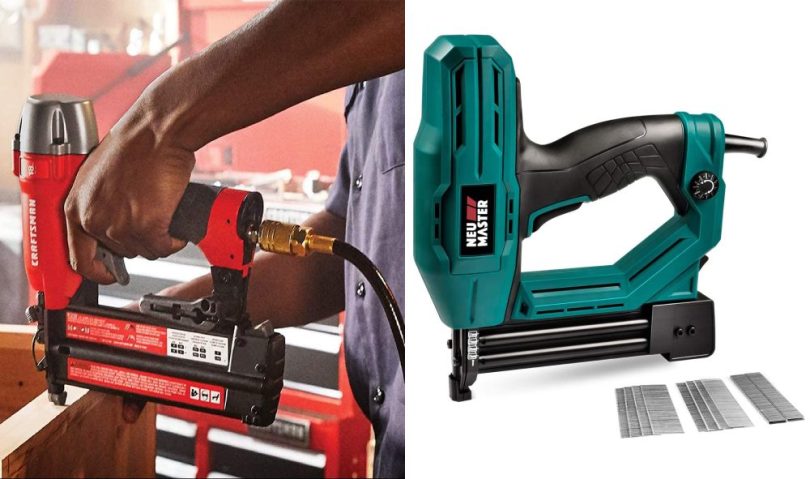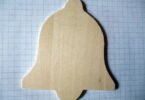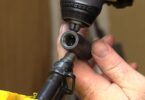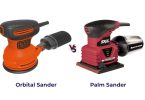Nail guns can be powered by gas canisters but most use electric or pneumatic energy. When buying a nail gun, the first thing you should consider is how they get powered.
There are pros and cons to both pneumatic and cordless nailers. Here we will go through their differences to help you decide which one to choose.
What Is a Pneumatic Nail Gun?
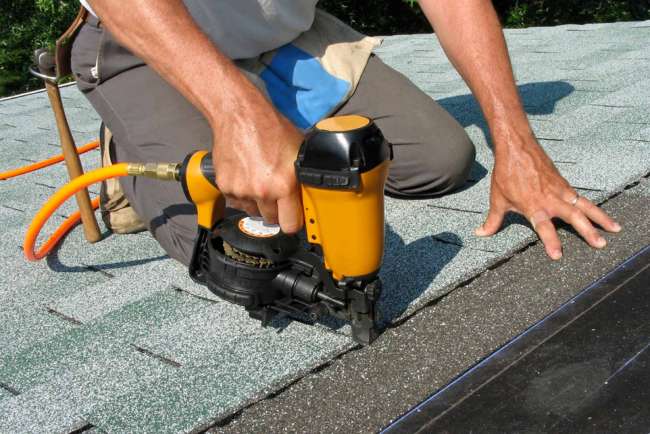
Pneumatic nail guns get powered by compressed air. Pneumatic nail guns are ineffective on their own. However, once you connect it to an air compressor, it becomes a handy and versatile tool.
There are many pneumatic nail guns on the market. Unfortunately, they tend to be set aside for professionals rather than amateurs. Don’t get put off by that since air nailers are useful for both amateurs and professionals.
Benefits of a pneumatic nail gun
- Superior power
- Fire rate
- Best for tough pieces of wood
- Drives a lot of nails in a short time frame
- Easy to set up
- Affordable
Drawbacks of a pneumatic nail gun
- Lacks mobility
- Always needs a compressor
- Always needs a power source
What Is an Electric Nail Gun?
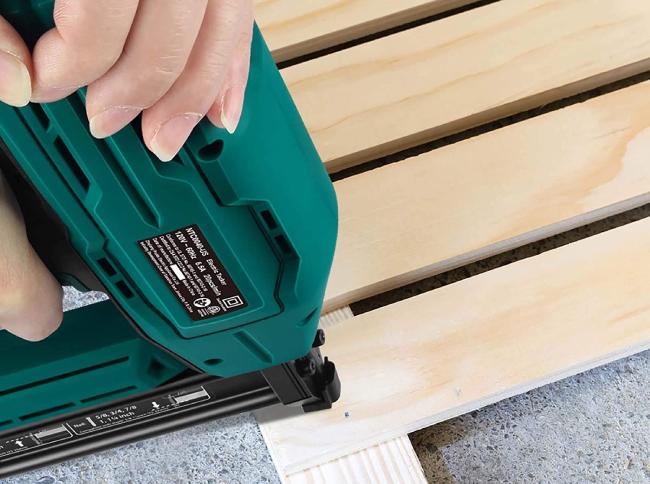
The nails in an electric nail gun use power from either a cable or battery (cordless). Your nail gun’s battery varies depending on its model. The batteries in some nail guns are larger, so they are more powerful and bulkier. Other nail guns use designs with smaller batteries that decrease power but increase maneuverability.
Advantages of an electric nail gun
- Corded models need a power source
- Batteries need charging often
- A common machine that is available in most hardware stores
- Portable
- Easy to transport
Drawbacks of an electric nail gun
- The force has limitations
- Less fire rate
- Shoots fewer nails per minute
- Expensive
- Need to buy replacement batteries
Pneumatic vs Electric Nail Gun: How Do They Differ?
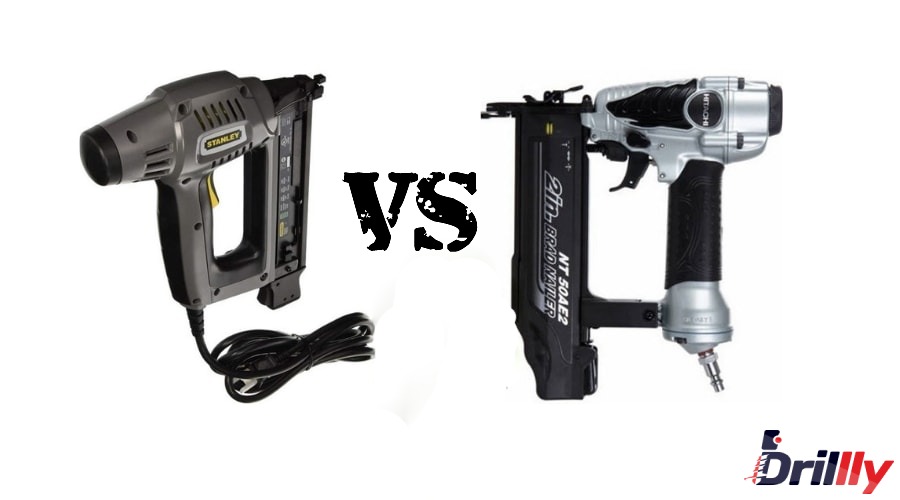
Setup
The pneumatic combination requires two trips. You get the compressor on the first trip and a nailer and hose on the second. Obviously, you’ll need nails and other materials, which also applies to cordless nailers.
I got the gear, found the plug, connected the nailer and hose, and warmed up the compressor. It took me over seven minutes.
From pulling it off my truck to firing my first nail, my cordless nailer took 30 seconds!
Weight
With regards to weight, the pneumatic models win. It doesn’t matter how much weight the extension hose adds but there is still a big difference.
A finish nailer weighs over 2 pounds, and a battery-powered nailer weighs as much as seven pounds.
Performance
When it’s about power and efficiency, pneumatic nail guns offer the most benefit. If you are not a carpenter or woodworker, cordless is powerful enough to meet your needs.
Power
Pneumatic nail guns can be an excellent choice if you need power and efficiency. However, you can still get enough power from the cordless gun to do most basic jobs.
Maintenance
The pneumatic nailer has a simpler design but there are more parts attached to it. You should also make sure that your hose is not leaking. A well-sealed coupling and NPT connection are essential.
Compressors need enough gas or power from a reliable source of electricity. You should keep an eye on the oil level of your compressor and oil your nailer every day if necessary.
Cordless nailers eliminate all these considerations and batteries are all you need to get started.
Run time
It seems unfair to compare the run times of these two types of nailers. The pneumatic nailer runs until it loses power or until your air compressor recycles.
The cordless nailers can drive hundreds of nails with a single charge with the shortest run time. Nailers can fire more than 1500 shots per charge.
For cordless models, you replace the batteries and charge the used ones so you won’t outwork them when you cycle two batteries.
Noise
Nailers with cordless technology are quiet. There is also no background noise from the compressor. If you are working in an area with people, this is a big advantage. The ones requiring a generator are loud and annoying.
Portability
When considering air-filled nailers and cordless guns, portability is also important. It is easy to transport a cordless nailer.
Air-filled models are less portable since air needs to be obtained externally. You may need to take an air supply with you.
Cost
Compared to other nail guns, cordless nailers have the lowest price but by a small margin. If you already own a compatible air compressor, pneumatic nail guns are not too expensive.
Cordless nail guns can set you up for around $250 for basic and over $800 for better ones. The pneumatic is available for around $150 upwards.
Safety tips for using nail guns
- Nail guns should never get close to your body or near your coworkers
- Get proper training if you’re a beginner
- Educate yourself on the safety procedures
- Never climb down ladders or walk around with a gun on
- Use protective equipment
When to use a pneumatic nail gun?
If you have a whole house or big room to do, it would be worthwhile to go with the pneumatic style. This type is also suited for carpenters and woodworkers.
When to use an electric nail gun?
Minor jobs and those quick hitlist tasks can get done fast and easily with the electric nail gun. These are more suited to those starting out and beginner levels.

